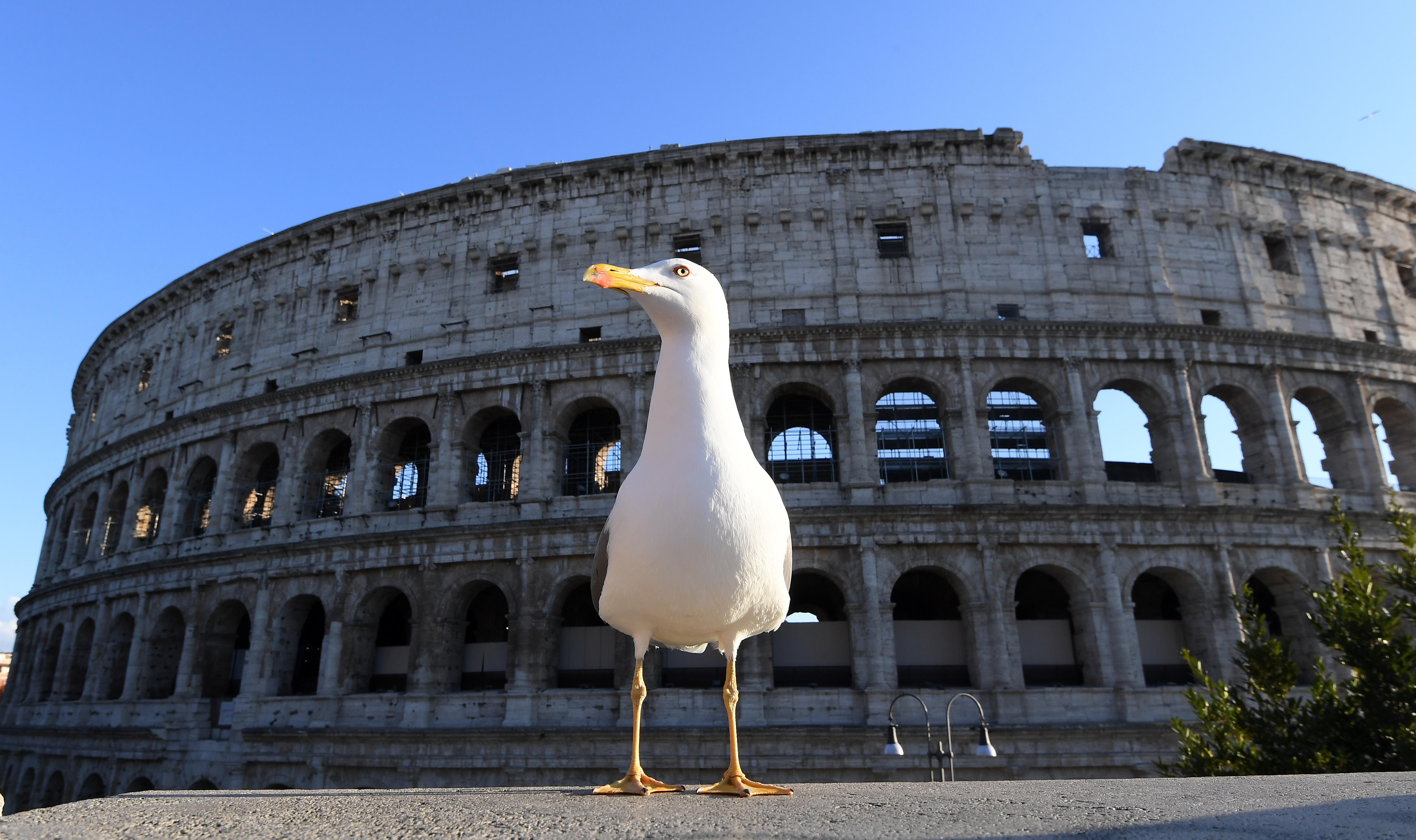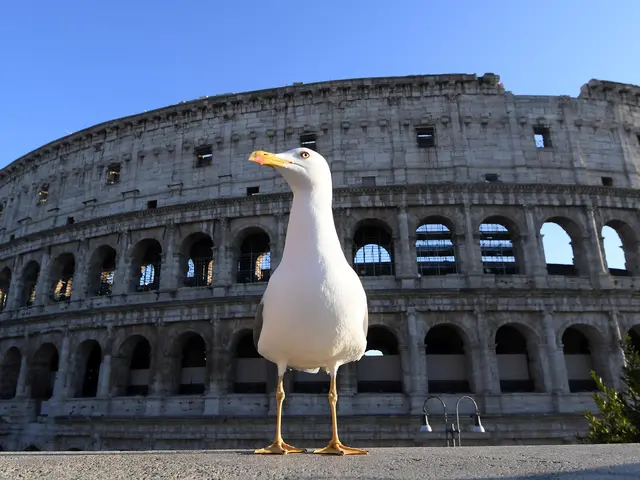Photo taken on March 8, 2020 shows the closed Luna Park in Mantova, Lombardy region, Italy. (Photo by Elisa Lingria/Xinhua)
Italy has locked down much of the country's north and put one fourth of its population in quarantine in an attempt to curb the quick spread of the novel coronavirus.
Italian Prime Minister Giuseppe Conte signed a government decree early Sunday, locking down the wealthy Lombardy region in the north and 14 nearby provinces, including the financial capital Milan and tourist hotspot Venice.
The drastic measure is endorsed by the World Health Organization (WHO). However, it brings anxiety to local residents.
"The virus is everywhere, in a bar, on any objects. I am afraid to do everything, such as shopping. I am also afraid to touch my car, maybe someone has infected it," said a Milan resident who only gave his given name as Giovanni.
He is one of the 16 million people affected by the quarantine measures aimed at containing the spread of COVID-19 that had infected more than 6,300 people and killed 366 in the country as of Sunday.
WHO Director-General Tedros Adhanom Ghebreyesus praised Italy's prevention measures, tweeting "The government the people of Italy are taking bold, courageous steps aimed at slowing the spread of the #coronavirus protecting their country globe. They are making genuine sacrifices. WHO stands in solidarity with Italy is here to continue supporting you."
"Life has changed in everything ... I always wash my hands and I try to keep my distance (from other people)," Giovanni said while complaining about being unable to take his children outdoors as "everything is closed."
The government's bid has dealt a heavy blow to the country's all-important tourism industry.
Museums, theaters, cinemas, night clubs, places of worship and ski resorts and other attractions in the northern region are closed until April 3. Bars and restaurants are allowed to operate from 6 a.m. to 6 p.m. as long as owners ensure that consumers observe a distance of personal security of at least one meter.
The sport industry has also been inevitably affected by the epidemic. The Juventus and Inter Milan, two of the country's most famous football teams, played a game behind closed doors due to the coronavirus. More games of the world's most renowned league could be suspended as was urged by Italy's sports minister and president of the players' association.
"These rules seem severe, but the number of infections are not slowing and so drastic steps are necessary," said Leo Bignami, a medical advisor to the administration of the northern region of Emilia-Romagna where more than 1,000 COVID-19 cases have been confirmed.
"It may be a question of taking severe steps now and curbing the number of sick people or waiting and having it drag on for weeks and many more people get sick or die," Bignami told Xinhua.
According to the WHO, over 100 countries and regions had reported confirmed cases of COVID-19 as of Sunday, with the caseload reaching more than 105,000.
In Europe, over 40 countries and regions have reported more than 7,000 confirmed cases, with Italy experiencing the biggest coronavirus outbreak.
In Italy's capital Rome, which is not under lockdown, people have imposed their own restriction on gathering. The city streets are far more empty than usual due to a dramatic drop-off in tourist arrivals and coronavirus fears that keep many locals at home.
At the popular San Teodoro weekend market, consumers had to wait in line before entering to ensure that there is enough room for those shopping inside to keep a safe distance from each other. Vendors also persuaded customers to load up in case the market was closed the following weekend.
"I was told not to go to work Monday. I don't know what will happen after that. But if I have to stay at home, I want to be able to eat something decent," said Anna Margariti, an office employee who bought a 1.5-liter tin of olive oil along with an armful of fresh vegetables at the market.
"I have to trust that the public authorities know what they are doing," she said.

 简体中文
简体中文





